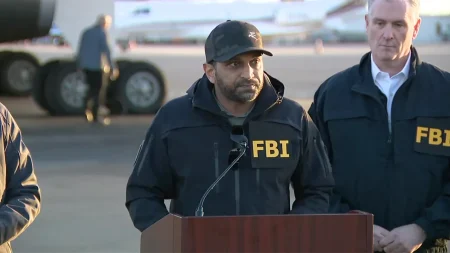Netanyahu’s Strategic European Tour Amid Gaza Conflict and ICC Warrant
Israeli Prime Minister Navigates Diplomatic Landscape While Facing International Legal Challenges
In a carefully orchestrated European diplomatic mission, Israeli Prime Minister Benjamin Netanyahu has embarked on a selective tour of allied nations, conspicuously bypassing countries that have adopted more critical stances toward Israel’s military operations in Gaza. The veteran statesman’s itinerary notably excluded France and Spain—two influential European powers that have vocally condemned aspects of the ongoing conflict and whose judicial systems might enforce the International Criminal Court’s recent arrest warrant against him. This calculated diplomatic choreography underscores the complex geopolitical reality Netanyahu faces as he attempts to shore up international support while navigating unprecedented legal challenges on the world stage.
The prime minister’s European engagements come at a particularly precarious moment for Israeli foreign relations. As the Gaza conflict approaches its first anniversary, the humanitarian situation has deteriorated dramatically, drawing intensifying international scrutiny and criticism. Countries like France and Spain have not only issued pointed diplomatic statements condemning the civilian casualty rate but have also taken concrete policy steps, including suspending certain arms exports to Israel and formally recognizing Palestinian statehood. These positions have effectively transformed these traditional European partners into diplomatic no-go zones for the Israeli leader, who instead prioritized visits to nations maintaining stronger support for Israel’s security positions, including the United Kingdom, Germany, and several Central European countries where right-leaning governments have maintained more sympathetic stances toward Israeli military operations.
The specter of potential arrest looms large over Netanyahu’s international movements following the ICC’s unprecedented warrant. Legal experts suggest that countries like France and Spain, with their robust commitments to international law and independent judiciaries, would face significant domestic and international pressure to execute the warrant should Netanyahu enter their territories. “The prime minister is effectively navigating a new map of Europe divided between countries that might arrest him and those that would not,” explained Dr. Sarah Levinson, professor of international relations at Tel Aviv University. “This represents an extraordinary constraint on Israeli diplomacy at precisely the moment when diplomatic engagement is most crucial.” Netanyahu’s team has reportedly conducted exhaustive legal analyses of various countries’ ICC implementation statutes before finalizing any travel plans—a remarkable new reality for the leader of a country long considered a close Western ally.
Shifting European Alliances and Public Opinion
The careful calibration of Netanyahu’s European itinerary reflects broader shifts in the continent’s political landscape regarding the Israeli-Palestinian conflict. Traditional divisions between pro-Israel Western European powers and more pro-Palestinian Eastern European nations have evolved significantly in recent years. Public opinion across Europe has shown increasing sympathy for Palestinian suffering in Gaza, placing pressure on governments to adopt more critical positions toward Israel’s military campaign. Massive pro-Palestinian demonstrations have become regular occurrences in Paris, Madrid, Berlin, and London, creating a challenging environment even in countries where governmental ties with Israel remain relatively strong. This public sentiment has translated into meaningful policy shifts in certain European capitals, with Spain, Ireland, and Norway formally recognizing Palestinian statehood in May 2024—a move Netanyahu denounced as “rewarding terrorism.”
Despite these challenges, Netanyahu has found receptive audiences among certain European leaders, particularly those with nationalist or conservative leanings who share his security-focused worldview and concerns about Islamist extremism. His European strategy has involved emphasizing shared counter-terrorism objectives and the threat posed by Iran and its proxies, arguments that resonate strongly with security-conscious governments regardless of their positions on the Palestinian question. “Netanyahu is effectively segmenting Europe based on ideological alignment rather than traditional alliances,” noted European Council on Foreign Relations analyst Petra Klingmann. “Countries with governments skeptical of multilateralism and international institutions have proven more receptive to Israel’s position on the ICC warrant and the Gaza conflict generally.” This approach has yielded limited diplomatic victories, with several Central European nations and the United Kingdom publicly questioning aspects of the ICC’s jurisdiction, though stopping short of rejecting the court’s authority outright.
The diplomatic isolation resulting from the ICC warrant represents unprecedented territory for Israel, which has historically maintained robust relationships across the European continent despite occasional tensions over the Palestinian issue. Former Israeli diplomats have expressed alarm at the current trajectory, with several speaking anonymously about the long-term damage to Israel’s international standing. “When an Israeli prime minister cannot safely visit founding EU members like France and Spain, we are witnessing a fundamental shift in Israel’s place in the Western alliance system,” said one former ambassador to European institutions. The diplomatic constraints come as Israel simultaneously faces challenges at the United Nations, where its military operations have drawn repeated condemnation, and in international trade, where several European countries have implemented partial economic measures targeting products from Israeli settlements in occupied territories.
Humanitarian Crisis and Legal Accountability at Center of Diplomatic Tensions
The backdrop to this diplomatic maneuvering remains the dire humanitarian situation in Gaza, where international organizations report catastrophic conditions for the civilian population. The United Nations has described the situation as “apocalyptic,” with critical shortages of food, medicine, clean water, and shelter affecting most of Gaza’s 2.3 million residents. These conditions have fueled the international legal proceedings against Netanyahu and other Israeli officials, with prosecutors citing evidence of deliberately impeded humanitarian access as part of the pattern of alleged war crimes. European governments critical of Israel have focused particularly on these humanitarian aspects, with French President Emmanuel Macron stating that “Israel’s right to self-defense cannot justify unlimited suffering among innocent civilians.”
Netanyahu has consistently rejected these characterizations, maintaining that Israel takes unprecedented measures to minimize civilian casualties while targeting Hamas, which initiated the conflict with its October 7th attack. During his European appearances, the prime minister has presented evidence of Hamas using civilian infrastructure for military purposes and has highlighted the continued captivity of Israeli hostages. However, these arguments have gained limited traction in countries where public opinion has shifted decisively against Israel’s military approach. The strategic avoidance of France and Spain on his European tour speaks to the limits of this narrative in certain influential capitals, while also highlighting the extraordinary new reality where legal accountability mechanisms are constraining the movement of a sitting Israeli prime minister. As the conflict continues with no immediate resolution in sight, this pattern of selective diplomatic engagement may become the new normal for Israeli leadership—a profound transformation in the international standing of a country that has long considered itself firmly anchored in the Western alliance system despite the ongoing occupation of Palestinian territories.








